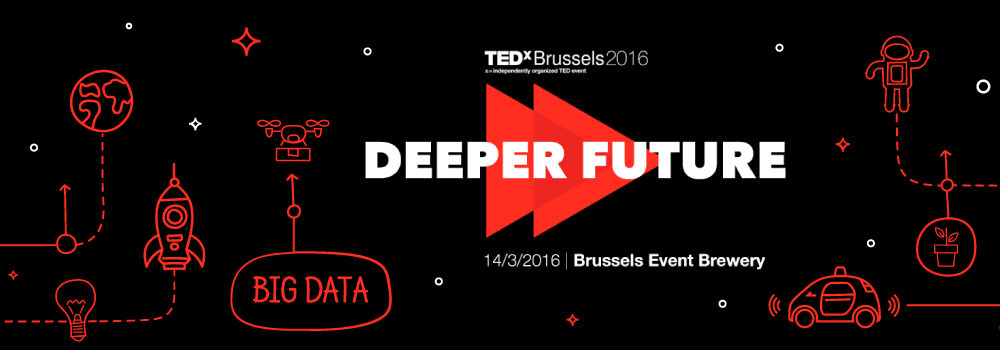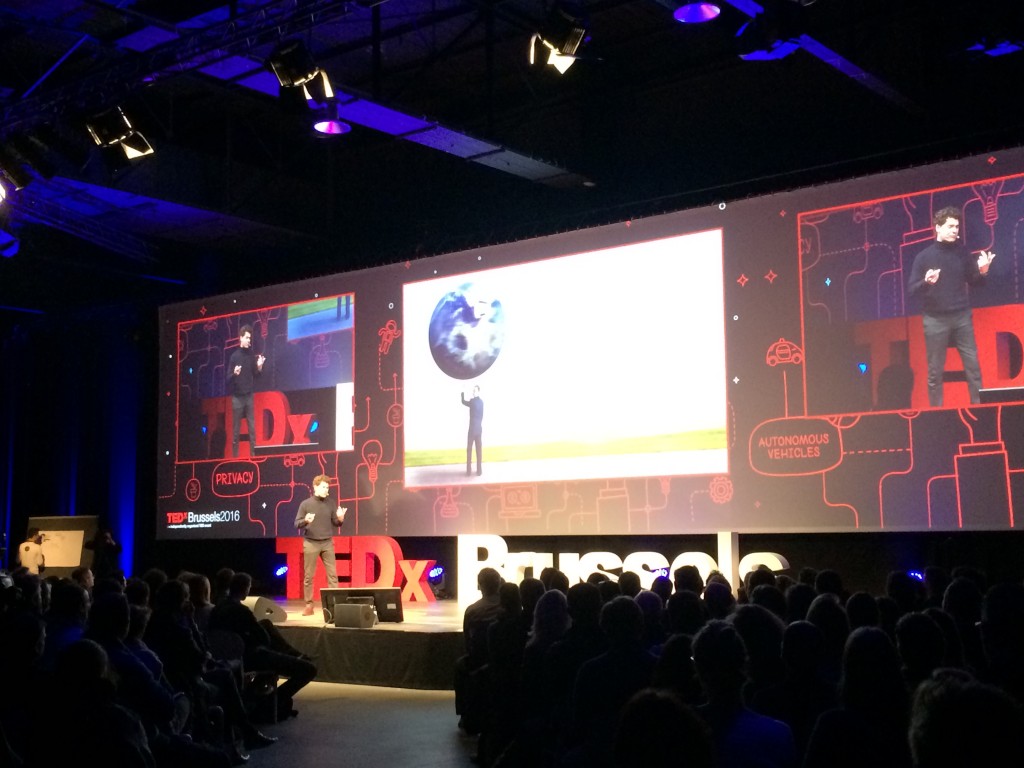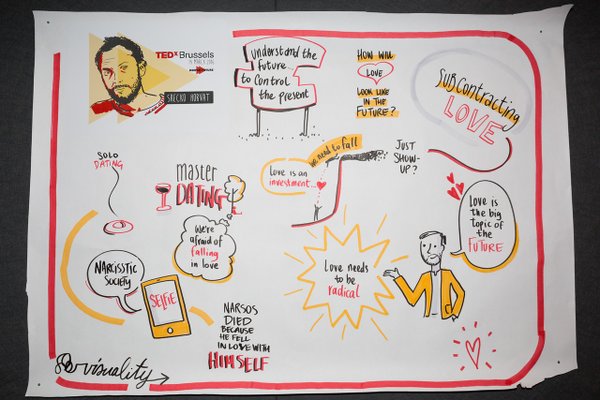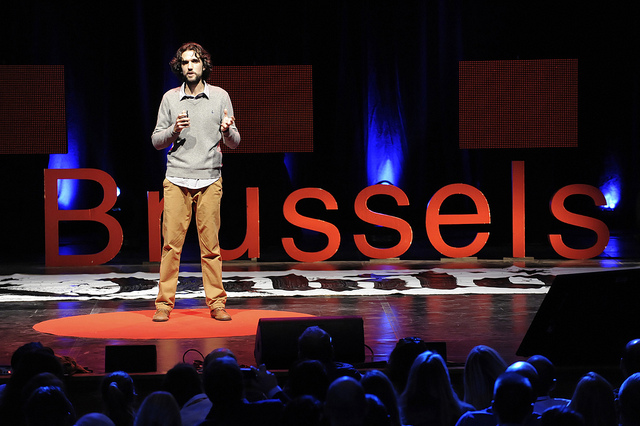‘Deeper Future’: that was the official theme of TEDxBrussels 2016 earlier this month. Under this theme, speakers explored how in the future we have ‘food computers‘ to grow our food, communication networks based on connected moving vehicles, and – less across the frontier, but very important indeed – patients who select their doctor.
Apart from the Deeper Future, I picked up a another underlying topic across several of the talks: Doing Good. Doing the right thing and being a good person, matter for happiness, it emerged from three talks I would like to highlight.
The Bank of the Common Good
Using finance for Doing Good, that is the aim of the Bank of the Common Good established by Christian Felber. Felber is a strong believer in social justice and the Common Good, and already explained his economic views at TEDxVienna last year. He started the establishment of the Bank of the Common Good to show what a bank would do when its first and foremost purpose is to truly to serve the public good. The Bank would not only have to be sure about the ethical, environmental and social effects of its investments, argued Felber. It would also have to meet high standards for transparency and participation of its depositors in decision-making. By Doing Good, the Bank of the Common Good could contribute to the quality of life in all society.
Can it happen? At the moment, over 3000 individuals have contributed capital of around 2,35 million Euros. If the mark of 6 million is met, a full banking service including savings accounts and credit cards will be launched. That is Doing Good on quite some scale!
The Good Lobby
Too many people use their talents to advance the interest of large firms, rather than to Do Good, is the diagnosis of Alberto Alemanno. Alemanno teaches EU affairs, but also has radical ideas to change European policy process. His project for the Good Lobby is based on the idea that many people want to do their jobs and life their lives, but are also committed to spend some time in making the world a better place. But how to bridge the gap between online ‘activism’ (liking a facebook page, signing a petition) and the full-time engagement needed for real social change?
Alemanno has found a middle way to allow individuals to use their full potential in changing the world: the Good Lobby. The idea is simple: by becoming a Citizen Lobbyist and contributing skills a couple of hours of week to NGOs working on a good cause, you can make a difference and contribute to a better quality of life. And ultimately, it will also make you happier, promises Alemanno.
Love in the future: subcontracting or radical?
One of the most surprising talks during the day – and one I definitely recommend to watch back once it’s available in the next few weeks – is the talk by Croat philosopher Srecko Horvat about love. As a philosopher, Horvat mainly wondered about the oddities of love nowadays and in the future. Modern technology has changed the way people experience love in their lives, and not always for the better! Horvat took his audience on a tour starting with a datingmaster app providing tips to navigate through an awkward first date. But in the deeper future, it goes further than that: it is possible to subcontract love. Online dating is cumbersome: wouldn’t be easier to hire someone to do write the messages and score the date for you, and then just show up for the date yourself?
Love certainly isn’t easier in a time of selfies, concluded Srecko in his plea for ‘radical love’. Narcissus died because he fell in love with himself. And also in a time of individuality, we might be too afraid to fall in love. But without the fall, there is no chance to love…
Bonus: the Brussels’ soundscape
I promised three highlights, but let me add a bonus! Witty and creative, musician and artist Sonoren demonstrated his edited version of Brussels’ soundscape to the audience. It might sound weird at first, but it’s a great way to explore the city in a completely different way. And if you can’t wait for the talk… there is an Easter egg here.





